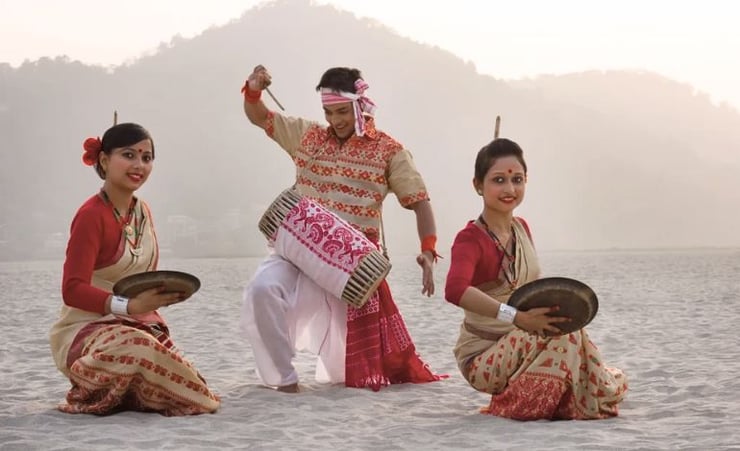New year celebrations haven't ended in India, not yet

Each region infuses its unique cultural essence into the festivities, creating a tapestry of traditions that mirror the rich diversity of India's new year celebrations.
"This is a country that also follows the lunar calendar for their rituals," says Sita Venkateswar, a social and cultural anthropologist at Massey University.
Venkateswar says the solar calendar, widely used in modern days, came to India with colonialism, but the practices of some families in India are still based around the lunar calendar.
In Karnataka, Andhra Pradesh and Telangana, Ugadi signals the commencement of the Chaitra month in the Hindu lunar calendar, celebrated in March or April.
Similarly, Maharashtra marks its new year, Gudi Padwa, during this time.
The Kashmiri Pandit community typically welcomes its new year, Navreh, in March or April.
The Islamic new year, also known as the Hijri new year, signifies the beginning of the Muslim lunar calendar.
This calendar serves as a key reference for significant Muslim events such as the commencement of Ramadan (month of fasting), Eid al-Fitr and the start of the Hajj pilgrimage.
The Islamic year has 12 months beginning with Muharram and ending with Dhul al-Hijjah. Each month starts with the sighting of the new moon.
In Gujarat, the commencement of the new year begins on the day following Diwali.
According to the Hindu calendar, this auspicious occasion occurs on Shukla Paksha Pratipada in the month of Kartik.
"But all of them mark the start of the spring," Venkateswar says.
These festivals are also associated with harvest. The spring harvest is grounded in agricultural cycles in the subcontinent.
Venkateswar says the new year is also associated with reaping the bounty of the winter crop and starting the new cycle for the next round of plantings that will come in the monsoon season.
Farmers across the country celebrate the new year, giving thanks to the land no matter how much they earn during the past season.
"The household that I grew up in celebrated Vishu, so my grandparents would give gifts of money and clothes to grandchildren," Venkateswar says. "You look forward to this because you always get new things from your family."
Baisakhi in Punjab is more connected to the agricultural cycle unlike Vishu in Kerala.
The former is still about harvest, while the latter is "less so and much more urbanized, involving gift-giving and rituals around worship and food."
While India does observe and celebrate the first day of January, with major cities such as Mumbai, Delhi and Goa joining global festivities, new year celebrations extend beyond January in a manner that is less commercial and more deeply rooted in cultural and ritualistic traditions within the wider South Asia nation.
"It's like Māori celebrating Matariki and marking it as the new year," Venkateswar says. "It exists in parallel and it's a ritualistic calendar."




